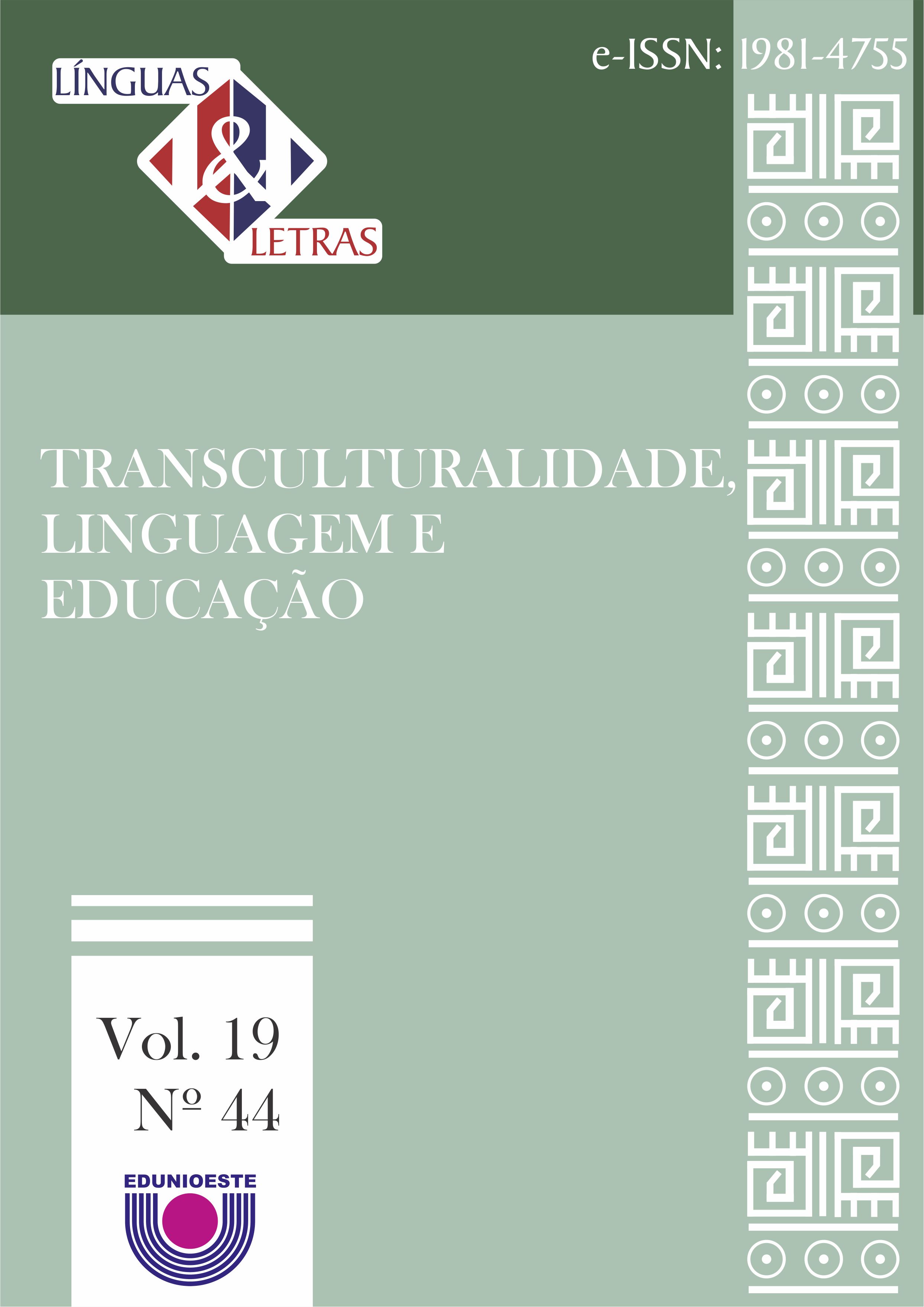Identidade em Jogos Digitais: Entre a Identificação e a Mecânica do Jogo
Palavras-chave:
identidade, jogos digitais, estereótipos, aprendizagemResumo
James Paul Gee (2007) define identidade, para o jogador digital, de três maneiras: virtual, real e projetiva. Ele afirma também que a aprendizagem pode ser um convite para se experimentar uma nova identidade ou se tornar uma nova pessoa. Neste trabalho, discutirei a maneira como jogadores se identificam com suas personagens ou avatares durante o jogo. Alguns deles podem se identificar com essas personagens, mas por outro lado podem escolhê-las simplesmente porque a mecânica do jogo lhes dá condições mais vantajosas. Nesse processo, aspectos como gênero e etnia podem assumir papel relevante.Referências
AARSETH, Espen. Quest games as post-narrative discourse. In: RYAN, Marie-Laure (Ed.). Narrative across media: the languages of storytelling. Lincoln: University of Nebraska Press, 2004. p. 361-376.
BRYDON, Diana; COLEMAN, William D. Globalization, autonomy, and community. In: BRYDON, Diana; COLEMAN, William D. (Ed.). Renegotiating community: interdisciplinary perspectives, global contexts. Vancouver: UBC Press, 2008. p. 1-28.
CORRIEA, Alexa R. Inside Ron Gilbert’s The Cave. Polygon. 10 set. 2012. Disponível em: <http://www.polygon.com/2013/1/24/3655312/inside-ron-gilberts-the-cave>. Acesso em: 12 dez. 2014.
DISHONORED, Part 3. Machinima. 13 set. 2012. Disponível em: <https://www.youtube.com/watch?v=OGd-9QNGvTo&feature=player_embedded&has_verified=1>. Acesso em: 7 abr. 2013.
FABRICATORE, Carlo. Gameplay and game mechanics design: a key to quality in videogame. Disponível em: <http://www.oecd.org/edu/ceri/39414829.pdf> Acesso em: 27 ago. 2014.
GEE, James Paul. What video games have to teach us about learning and literacy. New York: Palgrave McMillan, 2007.
GIDDINGS, Seth; KENNEDY, Helen W. Digital games as new media. In: RUTTER, Jason; BRYCE, Jo (Ed.). Understanding digital games. London: Sage, 2006. p. 129-147.
HALL, Stuart. A identidade cultural na pós-modernidade. 7. ed. Trad. Tomaz T. da Silva e Guacira L. Louro. Rio de Janeiro: DP&A, 2003.
HAND, Martin; MOORE, KARENZA. Community, identity and digital games. In: RUTTER, Jason; BRYCE, Jo (Ed.). Understanding digital games. London: Sage, 2006. p. 166-182.
JENKINS, Henry. Bringing critical perspectives to the digital humanities: an interview with Tara McPherson (part three). Disponível em: <http://henryjenkins.org/2015/03/bringing-critical-perspectives-to-the-digital-humanities-an-interview-with-tara-mcpherson-part-three.html >. Acesso em: 12 dez. 2014.
JUUL, Jesper. Half-real: video games between real rules and fictional worlds. Cambridge: The MIT Press, 2005.
LUNDGREN, Sus; BJÖRK, Staffan. Game mechanics: describing computer-augmented games in terms of interaction. Disponível em: <http://citeseerx.ist.psu.edu/viewdoc/download;jsessionid=fd9a811b8e2f1297692877efddee4e72?doi=10.1.1.13.5147&rep=rep1&type=pdf >. Acesso em: 1 nov. 2016.
MURRAY, Janet H. Hamlet on the Holodeck: the future of narrative in cyberspace. Cambridge: The MIT Press, 1997.
NORTON, Bonnie. Identity, literacy, and English-language teaching. TESL Canada Journal, vol. 28, n. 1, p. 1-13, 2011.
OLMSTEAD, Molly. Kansas Lawmaker Apologizes for Saying Black People Are More Likely to Abuse Drugs Because of Their “Character Makeup”. Slate. 9 jan. 2018. Disponível em: <https://slate.com/news-and-politics/2018/01/kansas-state-rep-steve-alford-apologized-for-his-remarks-about-marijuana-and-black-people.html >. Acesso em: 1 set. 2018.
PROFESSOR causa polêmica ao dizer que prefere ser atendido por médicos brancos a negros. Correio 24 horas. 5 nov. 2014. Disponível em: <http://www.correio24horas.com.br/detalhe/noticia/professor-causa-polemica-ao-dizer-que-prefere-ser-atendido-por-medicos-brancos-a-negros/?cHash=c06bb430dd8c3e686e7111ab6c9d7cab>. Acesso em: 7 dez. 2016.
RACE as mechanic. Produzido por: Sean Gouglas e Leah Hackman. Vídeo. 10’11’’. [S.l.: s.n., 2014.]
RODRIGUEZ, Sarah. How does ethnicity influence game design? Remeshed.com. 3 fev. 2016. Disponível em: <http://remeshed.com/2016/ethnicity-influence-game-design/>. Acesso em: 7 dez. 2016.
SCHOTT, Gareth. Agency in and around play. In: CARR, Diane et alii. Computer games: text, narrative and play. Cambridge: Polity Press, 2008. p. 133-148.
SHAW, Adrienne. Do you identify as a gamer? Gender, race, sexuality, and gamer identity. New Media & Society, vol. 14, n. 1, p. 28-44, 2011.
SICART, Miguel. Defining game mechanics. 2008. Disponível em: <http://gamestudies.org/0802/articles/sicart>. Acesso em: 2 nov. 2016.
SICART, Miguel. The ethics of computer games. Cambridge: The MIT Press, 2009.
SYKES, Jonathan. A player-centred approach to digital game design. In: RUTTER, Jason; BRYCE, Jo (Ed.). Understanding digital games. London: Sage, 2006. p. 75-92.
TAYLOR, T.L. Play between worlds: exploring online game culture. Cambridge: The MIT Press, 2009.
THORNTON, Simon. The Cave: Review. Pushsquare. 27 jan. 2013. Disponível em: <http://www.pushsquare.com/reviews/psn/cave>. Acesso em: 18 nov. 2016.
THE CAVE. San Francisco: Double Fine Productions, 2013.
WAGGONER, Zach. My avatar, my self. Jefferson: McFarland, 2009.
Downloads
Publicado
Como Citar
Edição
Seção
Licença
Aviso de Direito Autoral Creative Commons
Política para Periódicos de Acesso Livre
Autores que publicam nesta revista concordam com os seguintes termos:
1. Autores mantém os direitos autorais e concedem à revista o direito de primeira publicação, com o trabalho simultaneamente licenciado sob a Licença Creative Commons Attribution que permite o compartilhamento do trabalho com reconhecimento da autoria e publicação inicial nesta revista.2. Autores têm autorização para assumir contratos adicionais separadamente, para distribuição não-exclusiva da versão do trabalho publicada nesta revista (ex.: publicar em repositório institucional ou como capítulo de livro), com reconhecimento de autoria e publicação inicial nesta revista.
3. Autores têm permissão e são estimulados a publicar e distribuir seu trabalho online (ex.: em repositórios institucionais ou na sua página pessoal) a qualquer ponto antes ou durante o processo editorial, já que isso pode gerar alterações produtivas, bem como aumentar o impacto e a citação do trabalho publicado (Veja O Efeito do Acesso Livre).
Licença Creative Commons
Esta obra está licenciada com uma Licença Creative Commons Atribuição-NãoComercial-CompartilhaIgual 4.0 Internacional, o que permite compartilhar, copiar, distribuir, exibir, reproduzir, a totalidade ou partes desde que não tenha objetivo comercial e sejam citados os autores e a fonte.


